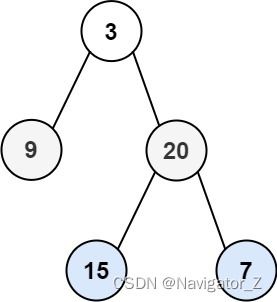题目来源:https://leetcode.cn/problems/lexicographically-smallest-palindrome/C++题解:从两端往中间判断,不同时则用字典序小的替换字典序大的。classSolution{public:stringmakeSmallestPalindrome(strings){intlen=s.size();for(intii=0;ii
强化学习:时间差分(TD)(SARSA算法和Q-Learning算法)(看不懂算我输专栏)——手把手教你入门强化学习(六)
wxchyy
强化学习算法
目录前言前期回顾一、SARSA算法二、Q-Learning算法三、总结总结前言 前两期我们介绍了动态规划算法,还有蒙特卡洛算法,不过它们对于状态价值函数的估值都有其缺陷性,像动态规划,需要从最下面向上进行递推,而蒙特克洛则需要一个Episode(回合)结束才能对其进行估值,有没有更直接的方法,智能体能边做动作,边估值一次,不断学习策略?答案是有的。这就是本期需要介绍的算法,时间差分法(TimeDi
回溯算法知识总结
专业刷题Pia
算法
1.什么是回溯怎么用(回溯本质及模版)底层逻辑:解决树形结构问题、用到递归逻辑、穷举本质优化靠剪枝。回溯模版:1.建立回溯函数(一般以void返回)难点:如何选取参数(index,sum,used,...)voidbacktracking(参数)2.回溯终止条件难点:如何对应终止条件if(终止条件){存放结果;return;}3.单层遍历规则(广搜(横向遍历)靠for循环,深搜(纵向遍历)靠递归)
java中的方法(函数)重载
C r a z y
java开发语言c语言
在java中我们写一个求数字和的代码,用到方法(函数)publicstaticintaddInt(inta,intb){returna+b;}publicstaticvoidmain(String[]args){intret=addInt(5,6);System.out.println(ret);}上面是求的是两个整形数字的求和,那么我们要求两个double类型的的数字的求和呢按照c语言的逻辑来写
重生之我在CSDN学基础语法
AI26108
算法c语言c++开发语言python数据结构java
C语言是一种通用的、结构化的、静态类型的编程语言,被广泛用于系统编程、嵌入式开发、应用软件开发等领域。以下是C语言的基础语法详细讲解。1.变量与数据类型1.1变量声明变量是存储数据的容器,在使用之前必须先声明:inta;//声明一个整型变量floatb;//声明一个浮点型变量charc;//声明一个字符型变量1.2数据类型C语言的基本数据类型如下:数据类型关键字说明整型int存储整数字符型char
一个数如果恰好等于它的因子之和,这个数就称为“完数“。例如6=1+2+3.编程找出1000以内的所有完数。-多语言
赔罪
Practicequestions算法javac语言javascriptpython
目录C语言实现Python实现Java实现Js实现题目:一个数如果恰好等于它的因子之和,这个数就称为"完数"。例如6=1+2+3.编程找出1000以内的所有完数。完数(PerfectNumber)是一个正整数,它等于其所有正因子(不包括自身)的和。换句话说,如果一个数n的所有正因子(除了n本身)相加的结果等于n,那么n就是一个完数。完数的性质完数是稀有的,已知的完数都是偶数。根据欧几里得的定理,完
【实验五 一维数组】7-2 sdut-C语言实验-整数位
卡西莫多~
SDUT的PTA练习算法开发语言c语言
7-2sdut-C语言实验-整数位输入一个不多于5位的正整数,要求:(1)求出它是几位数;//一个计数循环(2)分别输出每一位数字;//正序输出各位数字(3)按逆序输出各位数字。//逆序输出各位数字输入格式:输入一个不多于5位的正整数。输出格式:输出数据有3行,第一行为正整数位数,第二行为各位数字,第三行为逆序的各位数字。输入样例:123输出样例:3123321答案示例1(无注释)#include
C语言刷题第五章(上)
乞丐1469
C语言刷题c语言学习
一.题目:1.竞选社长(1)题目描述:假设你们社团要竞选社长,有两名候选人A和B。社团每名同学必须并且只能投一票,最终票数最多的为社长。(2)输入描述:一行,包括字符序列,包含A和B,输入以字符0结束。(3)输出描述:一行,一行字符,A,B或者E。输出A表示A得到的票数最多,输出B表示B得到的票数最多,输出E表示两个同学得到的票数一样多。(4)示例:输入:AABBBBBBBB0输出:B(5)代码实
(c语言)将一个数组逆序输出
WuwuwuH_
C语言C语言数组逆序输出编程算法
(c语言)将一个数组逆序输出#include#includeintmain(){intarr[10]={0,2,5,7,9,10,13,15,18,25};inti;intlength=(int)sizeof(arr)/sizeof(arr[0]);//判断数组长度(总长度除以单个的长度)printf("数组共有%d个数字\n",length);for(i=length-1;i>0;i--){pr
将一个数组逆序输出。-多语言
赔罪
Practicequestions算法数据结构pythonc语言javajavascript
目录C语言实现方法1:交换元素方法2:使用辅助数组方法3:使用递归方法4:使用标准库函数(C99及以上)总结Python实现方法1:交换元素方法2:使用切片方法3:使用reversed()函数方法4:使用list.reverse()方法方法5:使用for循环和append()总结Java实现方法1:交换元素方法2:使用Collections.reverse()方法(适用于对象数组)方法3:使用递归
AI编程篇-python基础篇
cv工程师(ctrl+c\v)
AI编程python
转型AI算法后的总结-python基础篇python基础AI算法工程师的日常开发工作离不开python这门语言。python的优点:开源免费、简单易学、丰富的库。以下是我总结的python的一些基础:1.python及IDE工具安装对于初学者来说,python的安装是必不可少的,但是为了方便代码编辑和查看结果及debug,可以安装pycharm社区版暂时用来前期学习:python安装及注意事项:下
大规模语言模型从理论到实践 开源指令数据集
AI天才研究院
DeepSeekR1&大数据AI人工智能大模型AI大模型企业级应用开发实战AI大模型应用入门实战与进阶计算科学神经计算深度学习神经网络大数据人工智能大型语言模型AIAGILLMJavaPython架构设计AgentRPA
大规模语言模型从理论到实践开源指令数据集1.背景介绍大规模语言模型(LargeLanguageModels,LLMs)近年来在自然语言处理(NLP)领域取得了显著的进展。诸如GPT-3、BERT等模型在各种任务中表现出色,从文本生成到翻译,再到问答系统,几乎无所不能。这些模型的成功离不开庞大的训练数据集和复杂的算法架构。然而,如何有效地构建和利用开源指令数据集,仍然是一个值得深入探讨的话题。2.核
Unity 中 Boids 算法:模拟群体行为的奇妙世界
阿贾克斯的黎明
游戏开发unity算法游戏引擎
目录Unity中Boids算法:模拟群体行为的奇妙世界一、Boids算法适用场景二、Boids算法基本原理三、在Unity中实现Boids算法在Unity游戏开发的广袤天地里,模拟逼真的群体行为能够为游戏增添丰富的动态与真实感。Boids算法作为实现这一效果的强大工具,被广泛应用于模拟鸟群翱翔、鱼群洄游、兽群迁徙等场景。本文将深入探讨Unity中Boids算法的应用,包括适用场景、实现方式及代码示
C/C++框架和库推荐
大王算法
C++入门及项目实战宝典C/C++开发实战365C++
值得学习的C语言开源项目-1.WebbenchWebbench是一个在Linux下使用的非常简单的网站压测工具。它使用fork()模拟多个客户端同时访问我们设定的URL,测试网站在压力下工作的性能,最多可以模拟3万个并发连接去测试网站的负载能力。Webbench使用C语言编写,代码实在太简洁,源码加起来不到600行。下载链接:http://home.tiscali.cz/~cz210552/web
ViewController添加button按钮解析。(翻译)
张亚雄
c
<div class="it610-blog-content-contain" style="font-size: 14px"></div>// ViewController.m
// Reservation software
//
// Created by 张亚雄 on 15/6/2.
mongoDB 简单的增删改查
开窍的石头
mongodb
在上一篇文章中我们已经讲了mongodb怎么安装和数据库/表的创建。在这里我们讲mongoDB的数据库操作
在mongo中对于不存在的表当你用db.表名 他会自动统计
下边用到的user是表明,db代表的是数据库
添加(insert):
log4j配置
0624chenhong
log4j
1) 新建java项目
2) 导入jar包,项目右击,properties—java build path—libraries—Add External jar,加入log4j.jar包。
3) 新建一个类com.hand.Log4jTest
package com.hand;
import org.apache.log4j.Logger;
public class
多点触摸(图片缩放为例)
不懂事的小屁孩
多点触摸
多点触摸的事件跟单点是大同小异的,上个图片缩放的代码,供大家参考一下
import android.app.Activity;
import android.os.Bundle;
import android.view.MotionEvent;
import android.view.View;
import android.view.View.OnTouchListener
有关浏览器窗口宽度高度几个值的解析
换个号韩国红果果
JavaScripthtml
1 元素的 offsetWidth 包括border padding content 整体的宽度。
clientWidth 只包括内容区 padding 不包括border。
clientLeft = offsetWidth -clientWidth 即这个元素border的值
offsetLeft 若无已定位的包裹元素
数据库产品巡礼:IBM DB2概览
蓝儿唯美
db2
IBM DB2是一个支持了NoSQL功能的关系数据库管理系统,其包含了对XML,图像存储和Java脚本对象表示(JSON)的支持。DB2可被各种类型的企 业使用,它提供了一个数据平台,同时支持事务和分析操作,通过提供持续的数据流来保持事务工作流和分析操作的高效性。 DB2支持的操作系统
DB2可应用于以下三个主要的平台:
工作站,DB2可在Linus、Unix、Windo
java笔记5
a-john
java
控制执行流程:
1,true和false
利用条件表达式的真或假来决定执行路径。例:(a==b)。它利用条件操作符“==”来判断a值是否等于b值,返回true或false。java不允许我们将一个数字作为布尔值使用,虽然这在C和C++里是允许的。如果想在布尔测试中使用一个非布尔值,那么首先必须用一个条件表达式将其转化成布尔值,例如if(a!=0)。
2,if-els
Web开发常用手册汇总
aijuans
PHP
一门技术,如果没有好的参考手册指导,很难普及大众。这其实就是为什么很多技术,非常好,却得不到普遍运用的原因。
正如我们学习一门技术,过程大概是这个样子:
①我们日常工作中,遇到了问题,困难。寻找解决方案,即寻找新的技术;
②为什么要学习这门技术?这门技术是不是很好的解决了我们遇到的难题,困惑。这个问题,非常重要,我们不是为了学习技术而学习技术,而是为了更好的处理我们遇到的问题,才需要学习新的
今天帮助人解决的一个sql问题
asialee
sql
今天有个人问了一个问题,如下:
type AD value
A
意图对象传递数据
百合不是茶
android意图IntentBundle对象数据的传递
学习意图将数据传递给目标活动; 初学者需要好好研究的
1,将下面的代码添加到main.xml中
<?xml version="1.0" encoding="utf-8"?>
<LinearLayout xmlns:android="http:/
oracle查询锁表解锁语句
bijian1013
oracleobjectsessionkill
一.查询锁定的表
如下语句,都可以查询锁定的表
语句一:
select a.sid,
a.serial#,
p.spid,
c.object_name,
b.session_id,
b.oracle_username,
b.os_user_name
from v$process p, v$s
mac osx 10.10 下安装 mysql 5.6 二进制文件[tar.gz]
征客丶
mysqlosx
场景:在 mac osx 10.10 下安装 mysql 5.6 的二进制文件。
环境:mac osx 10.10、mysql 5.6 的二进制文件
步骤:[所有目录请从根“/”目录开始取,以免层级弄错导致找不到目录]
1、下载 mysql 5.6 的二进制文件,下载目录下面称之为 mysql5.6SourceDir;
下载地址:http://dev.mysql.com/downl
分布式系统与框架
bit1129
分布式
RPC框架 Dubbo
什么是Dubbo
Dubbo是一个分布式服务框架,致力于提供高性能和透明化的RPC远程服务调用方案,以及SOA服务治理方案。其核心部分包含: 远程通讯: 提供对多种基于长连接的NIO框架抽象封装,包括多种线程模型,序列化,以及“请求-响应”模式的信息交换方式。 集群容错: 提供基于接
那些令人蛋痛的专业术语
白糖_
springWebSSOIOC
spring
【控制反转(IOC)/依赖注入(DI)】:
由容器控制程序之间的关系,而非传统实现中,由程序代码直接操控。这也就是所谓“控制反转”的概念所在:控制权由应用代码中转到了外部容器,控制权的转移,是所谓反转。
简单的说:对象的创建又容器(比如spring容器)来执行,程序里不直接new对象。
Web
【单点登录(SSO)】:SSO的定义是在多个应用系统中,用户
《给大忙人看的java8》摘抄
braveCS
java8
函数式接口:只包含一个抽象方法的接口
lambda表达式:是一段可以传递的代码
你最好将一个lambda表达式想象成一个函数,而不是一个对象,并记住它可以被转换为一个函数式接口。
事实上,函数式接口的转换是你在Java中使用lambda表达式能做的唯一一件事。
方法引用:又是要传递给其他代码的操作已经有实现的方法了,这时可以使
编程之美-计算字符串的相似度
bylijinnan
java算法编程之美
public class StringDistance {
/**
* 编程之美 计算字符串的相似度
* 我们定义一套操作方法来把两个不相同的字符串变得相同,具体的操作方法为:
* 1.修改一个字符(如把“a”替换为“b”);
* 2.增加一个字符(如把“abdd”变为“aebdd”);
* 3.删除一个字符(如把“travelling”变为“trav
上传、下载压缩图片
chengxuyuancsdn
下载
/**
*
* @param uploadImage --本地路径(tomacat路径)
* @param serverDir --服务器路径
* @param imageType --文件或图片类型
* 此方法可以上传文件或图片.txt,.jpg,.gif等
*/
public void upload(String uploadImage,Str
bellman-ford(贝尔曼-福特)算法
comsci
算法F#
Bellman-Ford算法(根据发明者 Richard Bellman 和 Lester Ford 命名)是求解单源最短路径问题的一种算法。单源点的最短路径问题是指:给定一个加权有向图G和源点s,对于图G中的任意一点v,求从s到v的最短路径。有时候这种算法也被称为 Moore-Bellman-Ford 算法,因为 Edward F. Moore zu 也为这个算法的发展做出了贡献。
与迪科
oracle ASM中ASM_POWER_LIMIT参数
daizj
ASMoracleASM_POWER_LIMIT磁盘平衡
ASM_POWER_LIMIT
该初始化参数用于指定ASM例程平衡磁盘所用的最大权值,其数值范围为0~11,默认值为1。该初始化参数是动态参数,可以使用ALTER SESSION或ALTER SYSTEM命令进行修改。示例如下:
SQL>ALTER SESSION SET Asm_power_limit=2;
高级排序:快速排序
dieslrae
快速排序
public void quickSort(int[] array){
this.quickSort(array, 0, array.length - 1);
}
public void quickSort(int[] array,int left,int right){
if(right - left <= 0
C语言学习六指针_何谓变量的地址 一个指针变量到底占几个字节
dcj3sjt126com
C语言
# include <stdio.h>
int main(void)
{
/*
1、一个变量的地址只用第一个字节表示
2、虽然他只使用了第一个字节表示,但是他本身指针变量类型就可以确定出他指向的指针变量占几个字节了
3、他都只存了第一个字节地址,为什么只需要存一个字节的地址,却占了4个字节,虽然只有一个字节,
但是这些字节比较多,所以编号就比较大,
phpize使用方法
dcj3sjt126com
PHP
phpize是用来扩展php扩展模块的,通过phpize可以建立php的外挂模块,下面介绍一个它的使用方法,需要的朋友可以参考下
安装(fastcgi模式)的时候,常常有这样一句命令:
代码如下:
/usr/local/webserver/php/bin/phpize
一、phpize是干嘛的?
phpize是什么?
phpize是用来扩展php扩展模块的,通过phpi
Java虚拟机学习 - 对象引用强度
shuizhaosi888
JAVA虚拟机
本文原文链接:http://blog.csdn.net/java2000_wl/article/details/8090276 转载请注明出处!
无论是通过计数算法判断对象的引用数量,还是通过根搜索算法判断对象引用链是否可达,判定对象是否存活都与“引用”相关。
引用主要分为 :强引用(Strong Reference)、软引用(Soft Reference)、弱引用(Wea
.NET Framework 3.5 Service Pack 1(完整软件包)下载地址
happyqing
.net下载framework
Microsoft .NET Framework 3.5 Service Pack 1(完整软件包)
http://www.microsoft.com/zh-cn/download/details.aspx?id=25150
Microsoft .NET Framework 3.5 Service Pack 1 是一个累积更新,包含很多基于 .NET Framewo
JAVA定时器的使用
jingjing0907
javatimer线程定时器
1、在应用开发中,经常需要一些周期性的操作,比如每5分钟执行某一操作等。
对于这样的操作最方便、高效的实现方式就是使用java.util.Timer工具类。
privatejava.util.Timer timer;
timer = newTimer(true);
timer.schedule(
newjava.util.TimerTask() { public void run()
Webbench
流浪鱼
webbench
首页下载地址 http://home.tiscali.cz/~cz210552/webbench.html
Webbench是知名的网站压力测试工具,它是由Lionbridge公司(http://www.lionbridge.com)开发。
Webbench能测试处在相同硬件上,不同服务的性能以及不同硬件上同一个服务的运行状况。webbench的标准测试可以向我们展示服务器的两项内容:每秒钟相
第11章 动画效果(中)
onestopweb
动画
index.html
<!DOCTYPE html PUBLIC "-//W3C//DTD XHTML 1.0 Transitional//EN" "http://www.w3.org/TR/xhtml1/DTD/xhtml1-transitional.dtd">
<html xmlns="http://www.w3.org/
windows下制作bat启动脚本.
sanyecao2314
javacmd脚本bat
java -classpath C:\dwjj\commons-dbcp.jar;C:\dwjj\commons-pool.jar;C:\dwjj\log4j-1.2.16.jar;C:\dwjj\poi-3.9-20121203.jar;C:\dwjj\sqljdbc4.jar;C:\dwjj\voucherimp.jar com.citsamex.core.startup.MainStart
Java进行RSA加解密的例子
tomcat_oracle
java
加密是保证数据安全的手段之一。加密是将纯文本数据转换为难以理解的密文;解密是将密文转换回纯文本。 数据的加解密属于密码学的范畴。通常,加密和解密都需要使用一些秘密信息,这些秘密信息叫做密钥,将纯文本转为密文或者转回的时候都要用到这些密钥。 对称加密指的是发送者和接收者共用同一个密钥的加解密方法。 非对称加密(又称公钥加密)指的是需要一个私有密钥一个公开密钥,两个不同的密钥的
Android_ViewStub
阿尔萨斯
ViewStub
public final class ViewStub extends View
java.lang.Object
android.view.View
android.view.ViewStub
类摘要: ViewStub 是一个隐藏的,不占用内存空间的视图对象,它可以在运行时延迟加载布局资源文件。当 ViewSt
